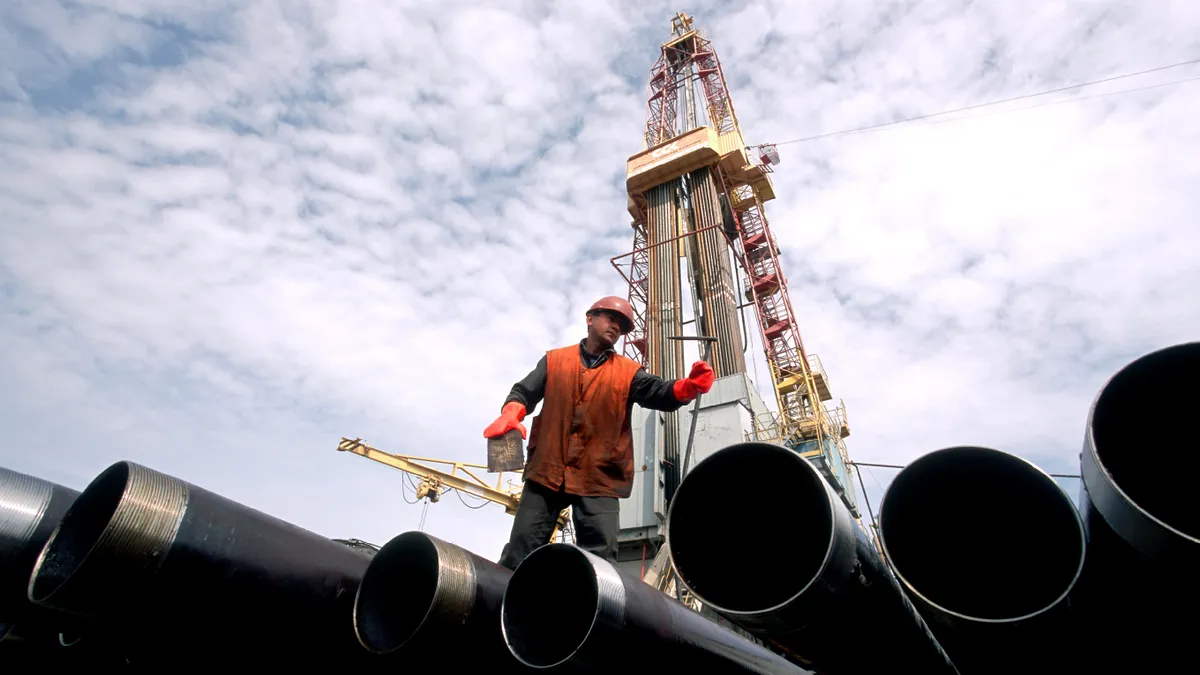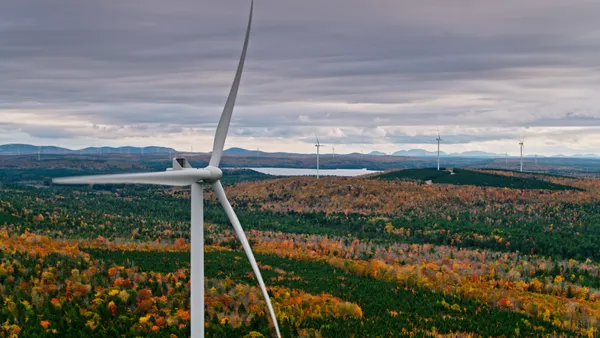Dive Brief:
- Black Hills Energy and Xcel Energy, as Public Service Co. of Colorado, have both proposed investments in natural gas reserves, aimed at locking in lower commodity prices to fuel power production, the Pueblo Chieftain reports.
- Xcel filed its plan last month, after announcing the strategy in its “Our Energy Future." The utility said it was "locking in current costs to provide long-term predictable rates for our customers."
- Black Hills, which serves the city of Pueblo, has come under fire for its proposal from local energy activists who believe ratepayers will wind up supporting the gas contracts, according to The Pueblo Chieftain.
Dive Insight:
Xcel and Black Hills are just the latest utilities to adopt a strategy that is spreading to states all around the country – turning to investments in natural gas to lock in affordable fuel, or stable utility returns. In recent months, the industry has seen electric utilities investing in gas transmission infrastructure, reserves and distribution utilities.
Colorado now will consider two applications for utilities to invest in gas reserves, but The Pueblo Chieftain reports some activists are wary of the plan. They believe residential consumers will wind up subsidizing the arrangement, which Black Hills would use to supply gas to its Pueblo Airport Generating Station.
Xcel floated its plan in January, explaining the company wants to take "further advantage of historically low natural gas prices by locking in current costs to provide long-term predictable rates for our customers." The utility submitted its Gas Reserves Filing in the last week of January.
While natural gas prices remain at historically low levels, utilities believe prices will rise and their investments in the long run will be a net positive for ratepayers. There is reason to be cautious, however: Florida Power & Light, for example, got authorization in 2013 from state regulators to invest directly in Oklahoma gas fields, but the deal so far has cost consumers millions.
But that's a blip, says the company. The $191 million deal reported a $5.8 million loss in 2015 but the utility said it still expects it will result in $50 million in savings to customers.
The Union of Concerned Scientists issued a recent report predicting total natural gas use will increase by almost 18% between 2013 and 2040, with almost half of that coming from the power sector. While that would support the argument that commodity prices will eventually rise, the group also said many states are at risk of “overreliance” on natural gas in several categories, including gas' share of overall capacity, projected gas capacity, percentage increases in generation, and emissions.














